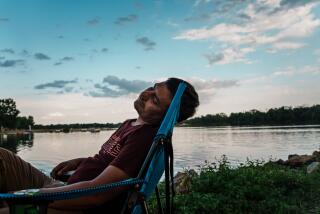Kurd Delinquency Rife in Parts of Turkey
- Share via
DIYARBAKIR, Turkey — Deniz was 10 when he committed his first crime. “I stole a few candy bars. It was pretty easy,” recalled the gaunt teenager, his speech slurred by chronic drug abuse. “Now I do cellphones.”
Deniz, who just turned 17, is part of a swelling band of juvenile criminals roaming the streets of this predominantly Kurdish city of 1.5 million people in Turkey’s impoverished southeast. Delinquents are blamed for a skyrocketing number of pedestrian muggings, car thefts and home robberies.
Muggings by juveniles -- many of them drug users between 15 and 18 -- rose 94% in 2004, according to a report released this week by the Diyarbakir security directorate. More than half of the offenders do not attend school, and police said there were at least 30 gangs operating in the city.
“Juvenile crime is the most serious problem in Diyarbakir, and we are unable to cope,” said Firat Anli, the mayor of Diyarbakir’s commercial Yenisehir district, among the worst affected.
The rise in juvenile crime here is widely linked to the 15-year fight between the Kurdish separatist insurgency and the Turkish army. The military’s aggressive campaign against the insurgency, which has been led by a group called the PKK, resulted in about 1.5 million Kurds, including Deniz’s family, fleeing their villages.
Many refugees wound up in shanty dwellings that sprung up around cities across the southeast.
Without the means to feed large families, parents began looking the other way as their children took to the streets, first to beg, then to take menial jobs and eventually to steal, peddle drugs and prostitute themselves.
Fiercely proud and largely tribal, Turkey’s estimated 14 million Kurds are primarily adherents of the Shafi sect, an orthodox offshoot of Sunni Islam. The erosion of moral values is “a blow to our collective honor,” Anli said.
Irfan Polat, a social worker who deals with Deniz, said boys who start bringing in money from their criminal activities often supplant jobless fathers as head of the family and can no longer be disciplined.
Many end up in juvenile detention centers where they face sexual and physical abuse from guards, said a government social worker in Ankara, who asked not to be identified. The centers are “kind of like shelters for stray dogs,” he added.
Bedrettin Karaboga, a Kurdish business leader, lays part of the blame on Turkey’s ruling Justice and Development Party. It has not “invested a single penny” or “created a single job” in the Kurdish region since coming to power 2 1/2 years ago, Karaboga said.
Last month, Prime Minister Recep Tayyip Erdogan formed a committee to draw up a comprehensive national plan to get children across Turkey off the streets and out of crime. “In major cities affected by internal migration ... the question of street children has emerged as a significant social problem,” Erdogan said in an internal memo obtained by the Los Angeles Times.
In Diyarbakir, Efkan Ala, the provincial governor, has teamed up with Anli to build a recreation and education center for street children.
Some critics contend that the government is taking action only because the problem is no longer confined to Diyarbakir. Juvenile gangs have started to ply their trade in resorts along the Mediterranean and Aegean coasts and in Turkey’s commercial capital, Istanbul.
“We go in the summer at the peak of the tourist season,” said a gang leader, who declined to be identified. He said daily “earnings” from picking pockets and stealing cellphones in Istanbul were as high as $1,500 a day. A third of the money, he said, was spent on bribing the police.
Oner Ergenc, a lawmaker from Erdogan’s party who is leading a parliamentary probe into juvenile delinquency, said preventive measures adopted by the government included monthly payments of $115 per child nationwide to families living below the poverty line.
Ergenc, a pious Muslim, also advocates expanding the use of birth control, which is shunned by many Kurds as un-Islamic. “What’s Islamic about having 10 children and not being able to feed or educate them?” he asked.
Ala said that efforts to repatriate and compensate displaced villagers should also ease juvenile crime. About 225 of the 393 villages and hamlets evacuated during the insurgency in Diyarbakir province have been repopulated since 2002.
But the program risks being derailed by the upsurge in violence in the southeast after the PKK called off a five-year unilateral truce a year ago.
Scores of Turkish soldiers and rebels have died in the fighting, which has shifted in recent weeks to the townships of Lice and Kulp, northeast of Diyarbakir. Diyarbakir’s delinquents seem unfazed. About 74% of those surveyed by the security directorate said they remained “hopeful for the future.”
More to Read
Sign up for Essential California
The most important California stories and recommendations in your inbox every morning.
You may occasionally receive promotional content from the Los Angeles Times.










